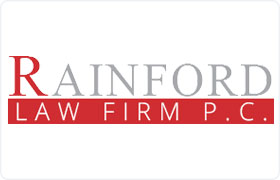Riverdale Reorganization Lawyer, Georgia
Sponsored Law Firm
-
 x
x

Click For More Info:
-
Rainford Law Firm P.C.
4920 N Henry Blvd. Stockbridge, GA 30281» view mapBankruptcy & Debt Law Experienced Bankruptcy & Debt Lawyer
Regardless of your situation, Attorney Chalcia Rainford is more than happy to guide you in the direction that will be most beneficial for you!
800-632-9140
Karen King
✓ VERIFIEDBankruptcy & Debt, Bankruptcy, Collection, Credit & Debt, Reorganization
We have helped thousands of clients avoid home foreclosure, car repossession and reduce their other debts. Our experienced team fully understands the... (more)
Gregory R. Crochet
Dispute Resolution, Reorganization, Credit & Debt, Bankruptcy
Status: In Good Standing Licensed: 41 Years
Jeff Field
Bankruptcy & Debt, Consumer Bankruptcy, Credit & Debt, Reorganization
Status: In Good Standing Licensed: 40 Years
FREE CONSULTATION
CONTACT Chalcia Rainford Stockbridge, GA
Chalcia Rainford Stockbridge, GA AboutRainford Law Firm P.C.
AboutRainford Law Firm P.C. Practice AreasExpertise
Practice AreasExpertise

